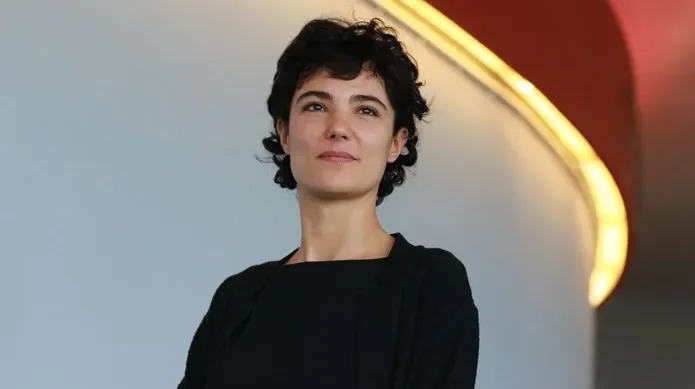

Spotlight on Research: New perspectives on Islamism and stereotypes
This week's Spotlight on Research is with Dr Paola Rivetti, Assistant Professor in Politics of the Middle East and International Relations in DCU School of Law and Government.
Paola, the last time we caught up with you earlier this year, you had just won the Irish Research Council Early-Career Researcher of the Year Award. What have you been up to since?
"It has been very busy. One of the things that happened directly from getting that award was that I was contacted by TEDx TrinityCollegeDublin and they asked me to do a talk. I was nervous about doing it, but I wanted to use it as a platform to talk about an important issue."
What was your TEDx talk about?
"In it I talked about how we can learn from our mistakes, both as researchers and as human beings. I specifically challenged how when we work with refugees and asylum seekers, we can reproduce racism and stereotypes even when that is not our intention. I have worked with refugees and asylum seekers for a long time in different countries. Here in Ireland, I support the campaigns to end Direct Provision and for the right to work. I participated in the Mellie Project at DCU University of Sanctuary. The mistakes I have made with my own presumptions and attitudes during the years have helped me to learn. I spent a lot of time preparing the talk and I asked people in Ireland, Greece, Iran and Turkey to read it beforehand and comment, so it was a collective effort!"
You have also co-edited a new book about Islamist politics and the ‘Arab Spring’. Tell us about that.
"This book is about how the so-called ‘Arab Spring’ has impacted on Islamist actors in the Middle East and North Africa. It arose from a project funded by the Gerda Henkel Foundation I worked on some years ago and it is titled Islamists and the Politics of the Arab Uprisings: Governance, Pluralisation and Contention. I co-edited it with Hendrik Kraetzschmar from the University of Leeds and it came out earlier this year. It’s a big book, 21 chapters, and big names from the field contributed to it."
What kinds of changes did it examine?
"It considers case studies from different countries, ranging from Egypt to Iraq, but we also included countries that received less attention, such as Qatar and Yemen. We also broadened the conversation of what organisations mean, so it’s about traditional political parties but also less mainstream organisations. For example, one chapter looks at Islamist revolutionary women who work in charities, and they operated differently from political parties with more formal governance and structure. As the broader political sphere closes up, you would expect people to have less agency but you see these non-structured organisations are able to carve out ways."
What do you hope the book will achieve?
"Well, we decided to bring the book together because as academics we found it difficult to find comparative books on this topic. The scholarship on Islamist politics after 2011 is somewhat scattered, and I hope the book will inspire more comparative research in the area. Also, the book takes some interesting views about looking at Islamism through different lenses. The field generally divides Islamist groups into moderate and radical, but some groups may be radical on one issue but moderate on another, so maybe it makes more sense to examine their activities and how they operate in specific contexts, and build up that more nuanced analysis."
Are you happy with the book and TEDx talk?
"Yes, I am happy with both! The book suggests new ways of thinking about Islamism, and the TEDx talk gave me a chance to do some self-reflection, which is always a good opportunity to learn."
You can read Dr Rivetti's previous Spotlight on Research here.
